Pelagos
Designing a cooperative deep-sea board game.
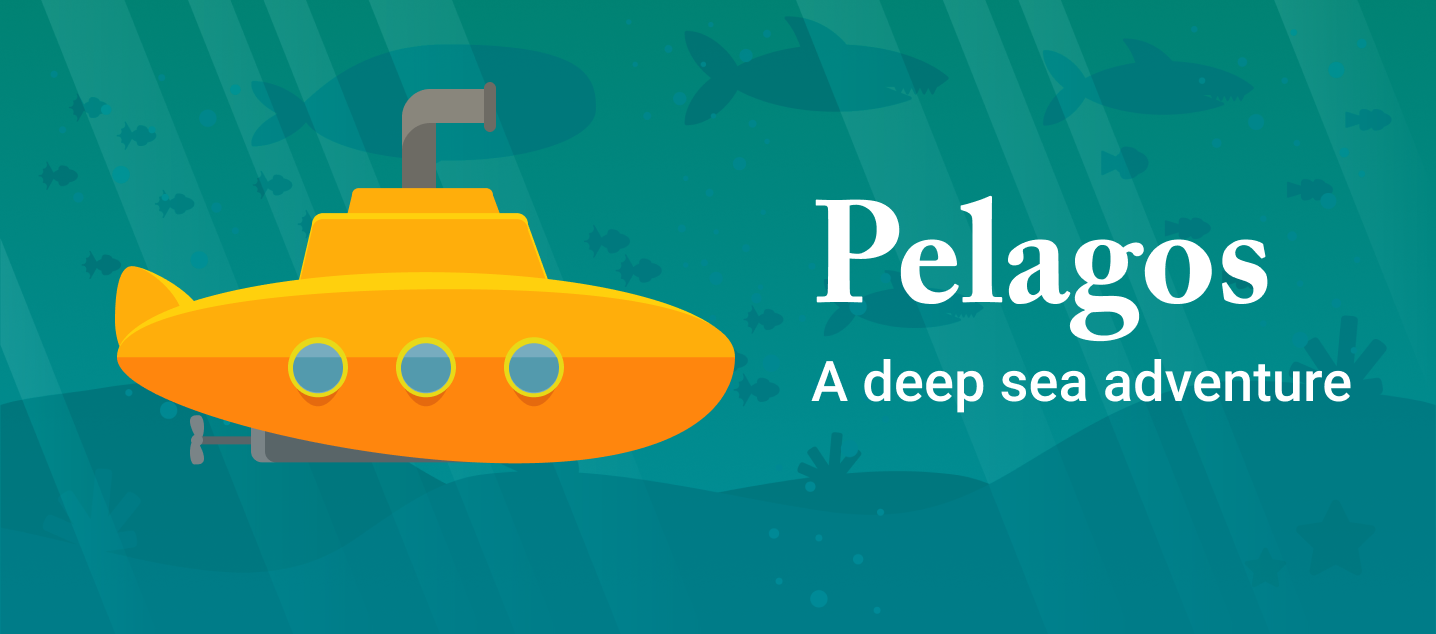
Project Length
September 2016 (2 weeks)
My Role
Design, Rapid Prototyping, Testing
Background
During my time at E-Line Media, I participated in a number of game jams that flexed my creative concepting skills. Pelagos was a board game that I pitched, concepted, and then designed with my colleagues over the course of two weeks.
Goals
I wanted to make a game where players could learn about ocean zones and gain a sense of the excitement and discovery of deep sea exploration. Most of the ocean floor has been mapped on a large-scale, but only to a resolution of 5km. 95% of the ocean and what lives there remains to be explored and understood.
Game Pitch
What is Pelagos
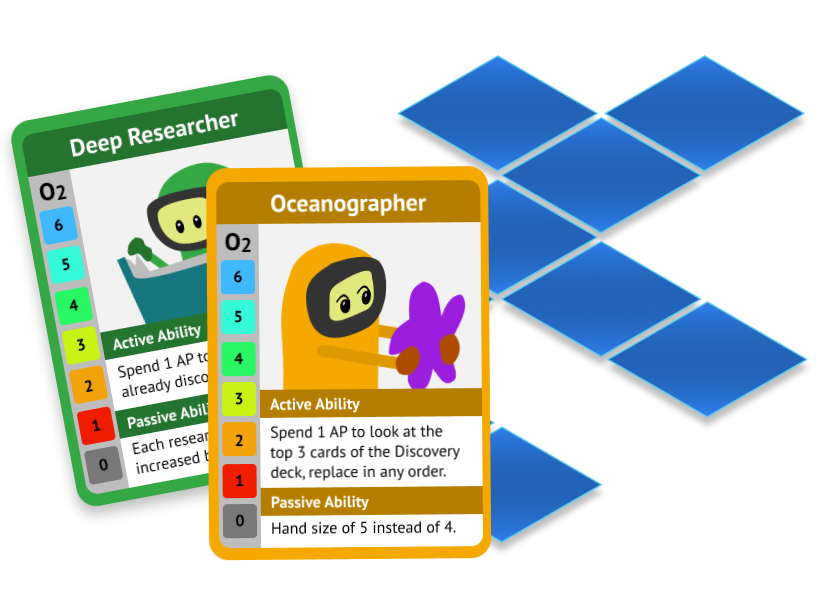
Pelagos is a 1-4 player cooperative tile-laying board game where players take on the role of a scientific research team exploring the deep sea.
- Carefully manage resources (fuel, food, funds) as you make trips between your base and the ocean floor. Lose the game by running out of resources! Oh no!
- Conduct research on your discoveries to fulfill missions and gain funding (points).
- Descend into the deepest ocean zones. But be careful, navigation becomes more difficult and costly, as a dead-end and a suit leak could mean your doom!
- Win the game by fulfilling missions outlined by your research mandate (randomly drawn mission cards).
Gameplay Overview
You are part of a research team living in a deep ocean base. Using a tile-laying system, players explore and map the ocean floor, uncovering caves, plains, volcanoes, canyons, and new lifeforms. Descend into the deepest ocean zones, chart new territory, and achieve scientific glory!
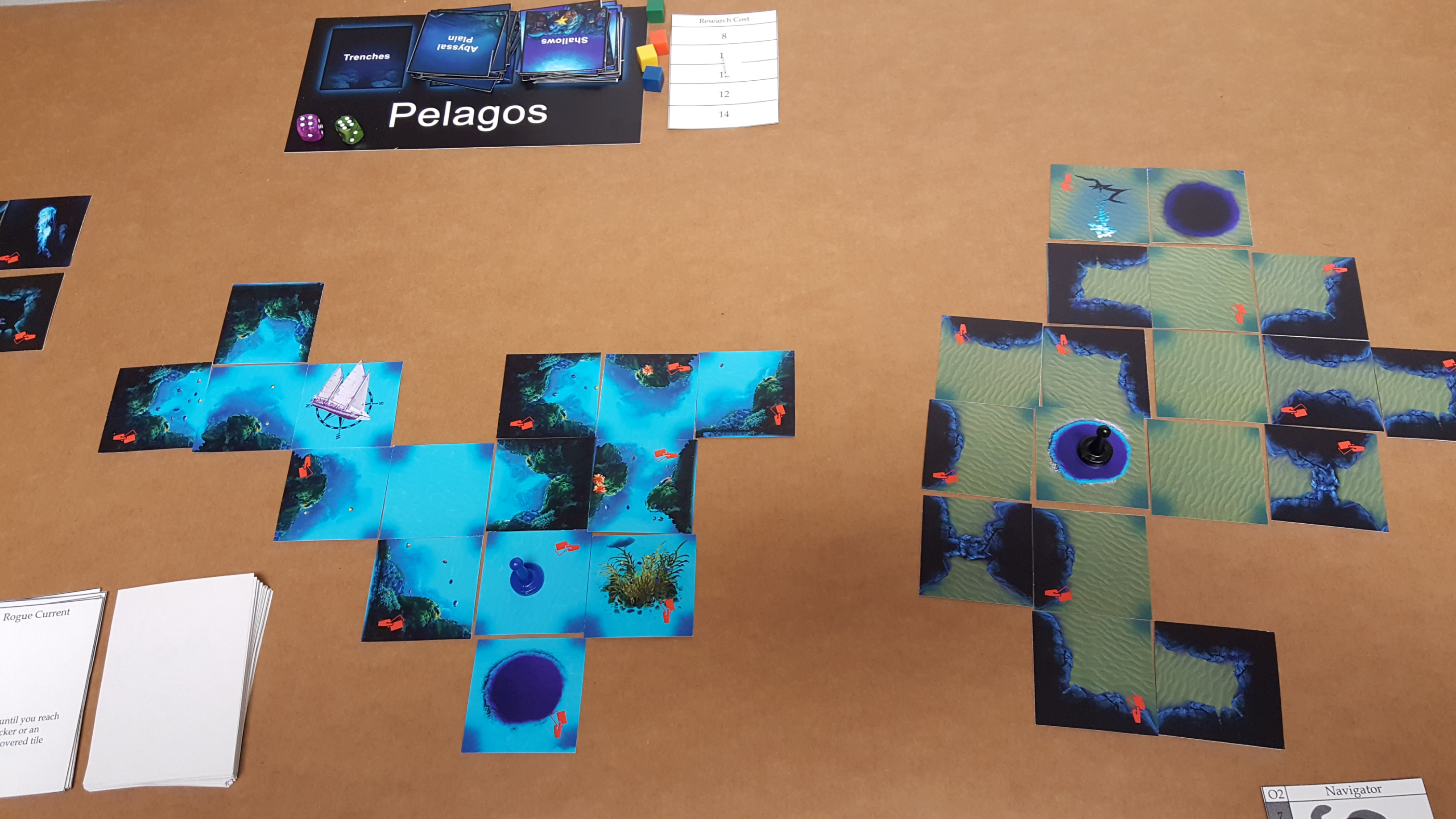
Every Game is Unique
In Pelagos, the board is generated procedurally by drawing tiles randomly, meaning every game you play is different. By uncovering each tile, players find random events, discover items and new species, reveal passages to goals or dead ends in the most dangerous parts of the ocean.
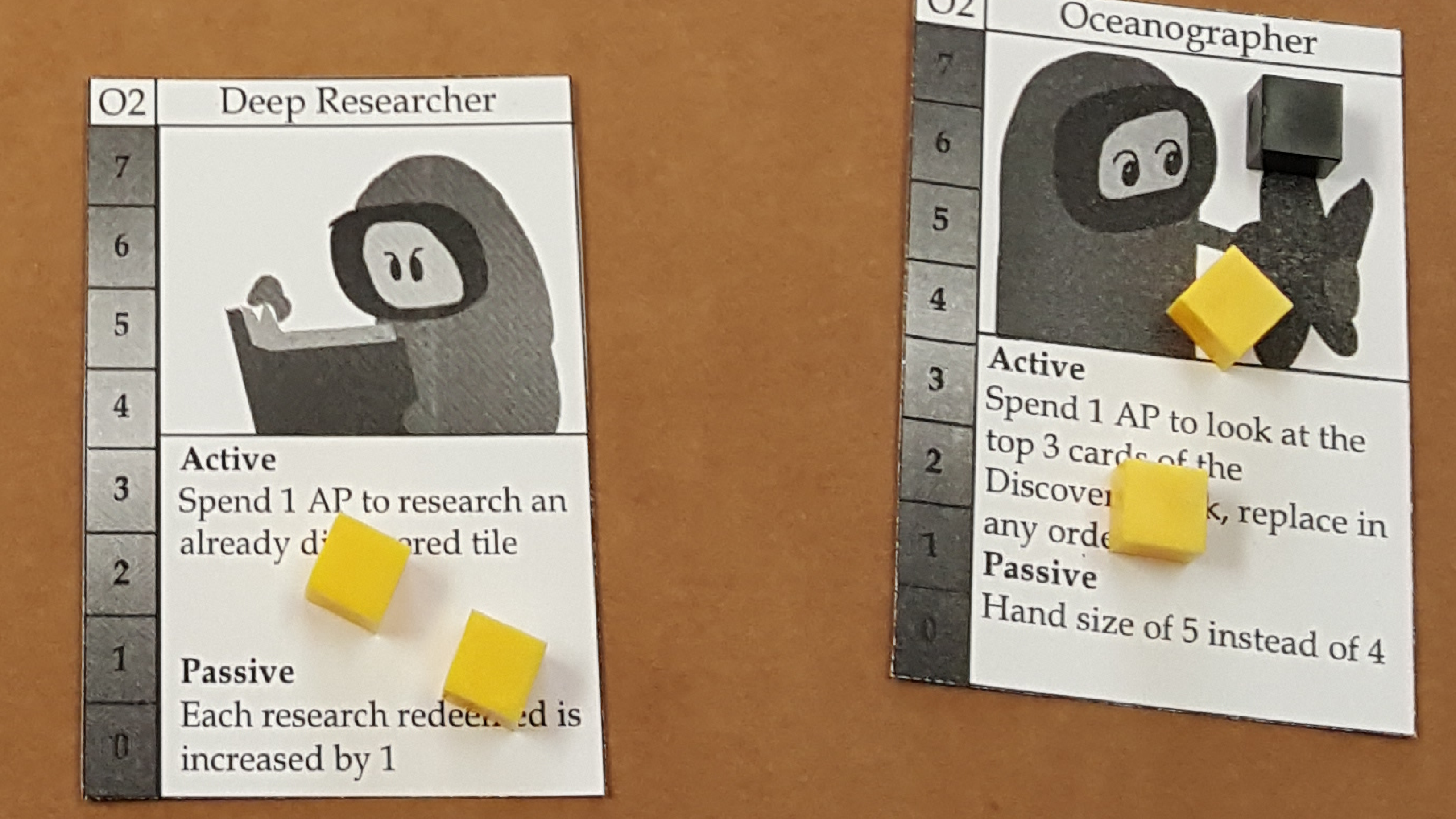
Specialized Characters
Each player takes on the role of a character with specific abilities and traits, resulting in a personalized play experience. Players can use their roles to explore the map or help their teammates, combining strengths for powerful results.
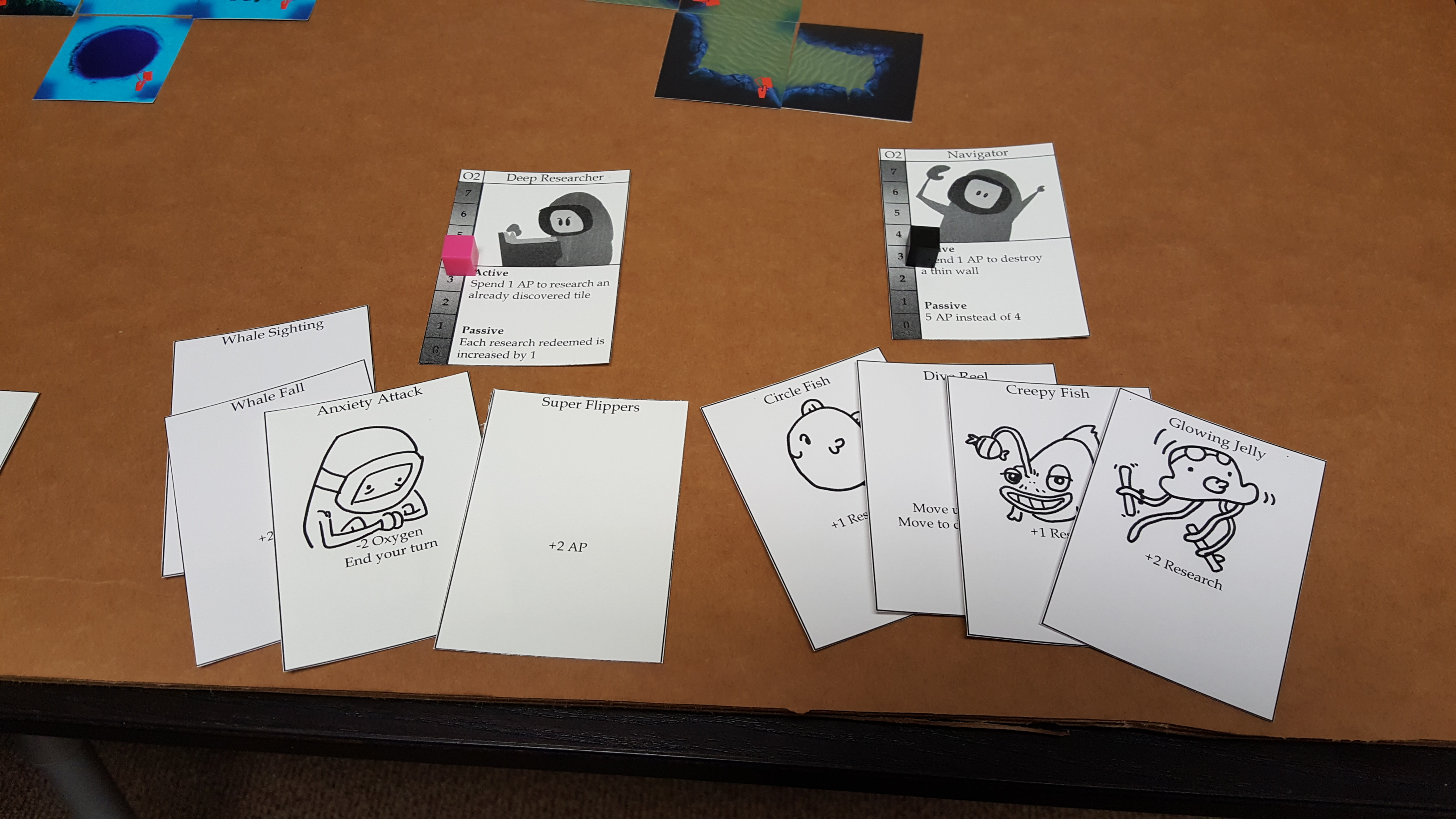
Collecting Cards
Players acquire cards that represent discoveries, such as new species with research bonuses or special items. They can also receive negative cards that increase the difficulty of the game, such as Suit Leaks which deplete player oxygen, or Shark Attacks—everyone's favorite!
Iteration Process
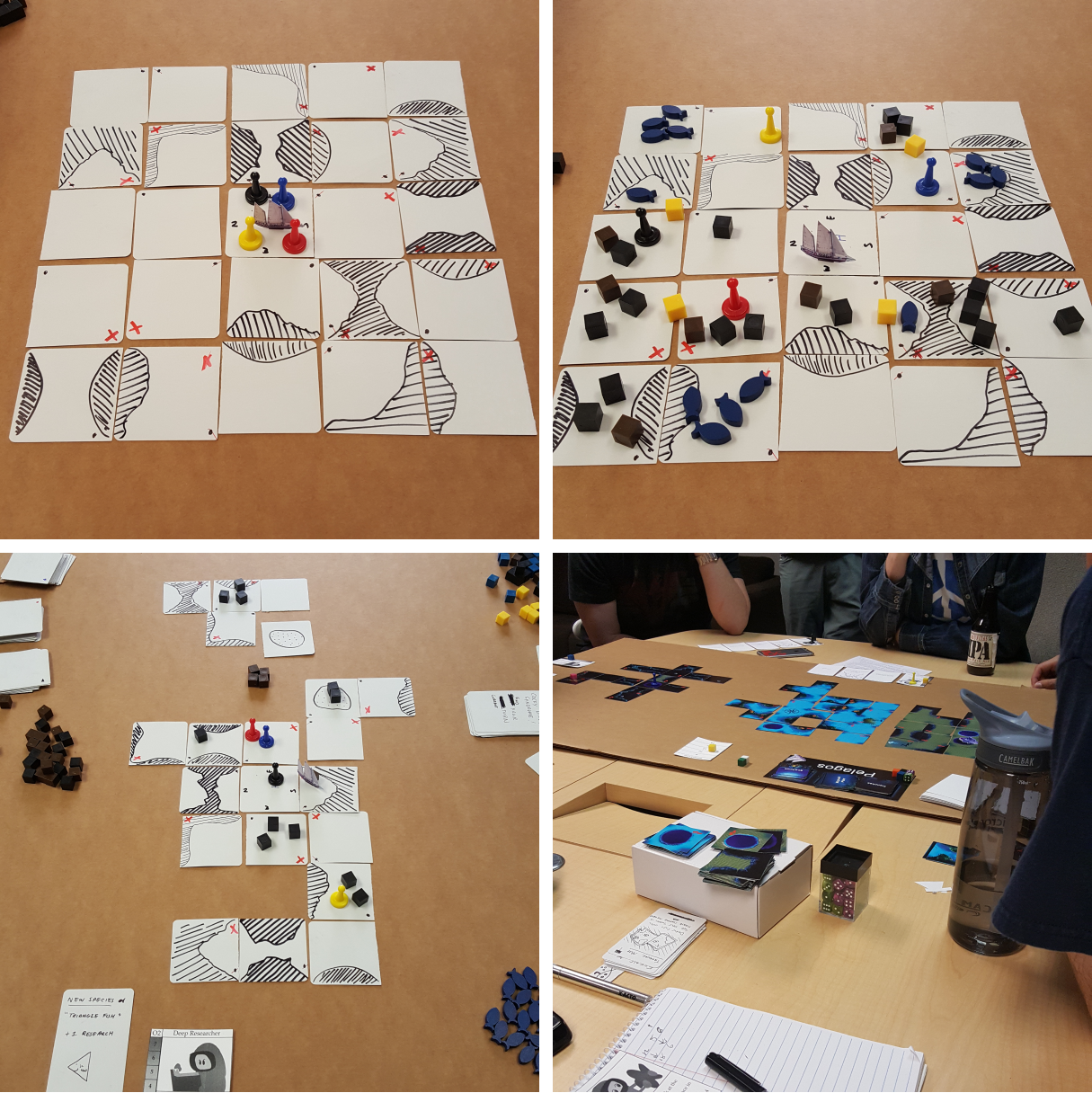
Results and Lessons Learned
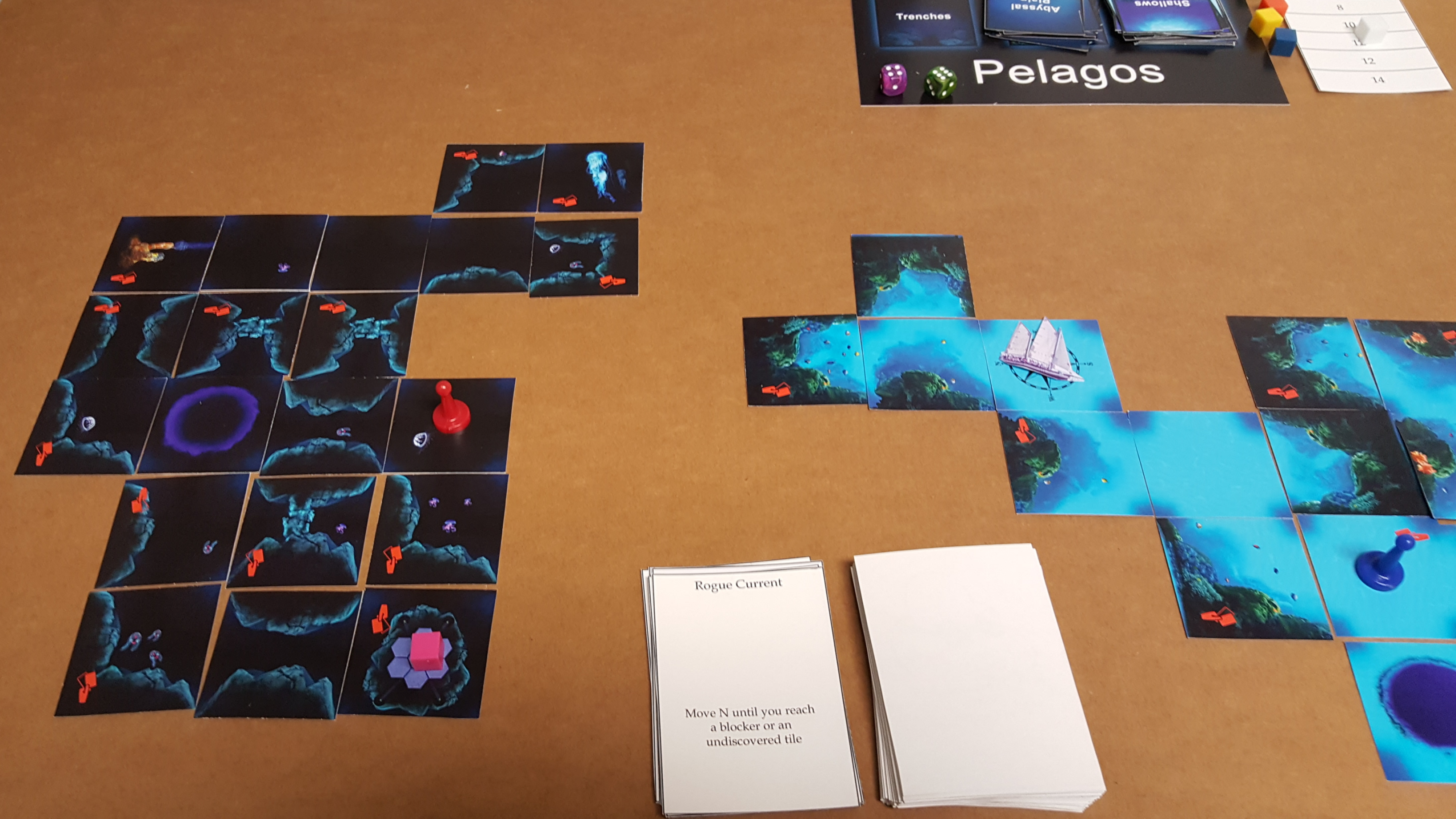
At the end of two weeks, we had a playable prototype that was fun, challenging, and feature-complete. I learned a lot from Pelagos, and I came out of it as a better designer.
Tweak often and limit the variables
We iterated often and fast, which is good for prototyping, but sometimes we got carried away. It's always best practice to limit the number of variables so you can trace the outcomes correctly.
Stay organized
Our meeting notes and rule sheets very quickly got out of hand when we weren't paying attention. Organizing our documents in a living wiki bible kept us sane!
Get everyone to try it out
New perspectives helped us locate weaknesses in our design and encouraged us to consider alternative solutions to our problems.
Listen to the wacky ideas
The wacky ideas—all the jokes, braindumps, and idle trains of thought—were the ones that kept us laughing and inspired.